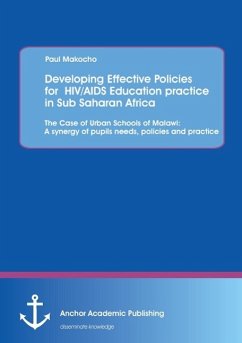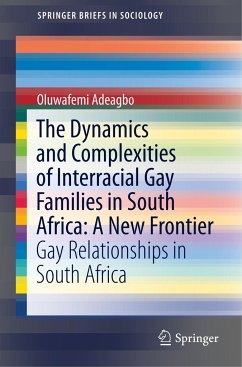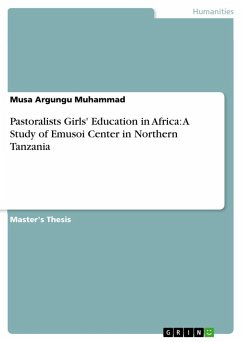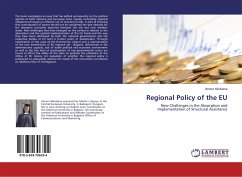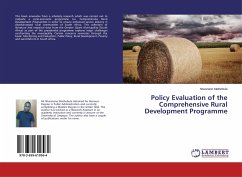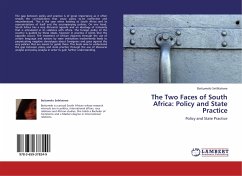
The Two Faces of South Africa: Policy and State Practice
Policy and State Practice
Versandkostenfrei!
Versandfertig in 6-10 Tagen
36,99 €
inkl. MwSt.

PAYBACK Punkte
18 °P sammeln!
The gap between policy and practice is of great importance as it often reveals the contradictions that cause policy to be ineffective and misunderstood. This is the case when looking at South Africa and its representations of itself and the accompanying policies. On one hand, South Africa has a very Africanist agenda and an ideology of inclusivity that is articulated in its relations with Africa. The foreign policy of the country is guided by these ideals, however in practice it seems that the opposite occurs. The treatment of African migrants through the use of certain language and actions by...
The gap between policy and practice is of great importance as it often reveals the contradictions that cause policy to be ineffective and misunderstood. This is the case when looking at South Africa and its representations of itself and the accompanying policies. On one hand, South Africa has a very Africanist agenda and an ideology of inclusivity that is articulated in its relations with Africa. The foreign policy of the country is guided by these ideals, however in practice it seems that the opposite occurs. The treatment of African migrants through the use of certain language and actions by state institutions inadvertently leads to perpetuating negative stereotypes about foreigners and goes against the very policies that are meant to guide them. This book aims to understand the gap between policy and state practice through the use of discourse analysis and policy analysis in order to gain further understanding.



